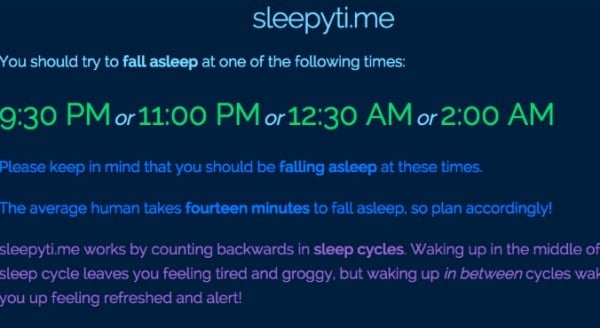
Image: iStock.
After a particularly tumultuous night, my bereaved partner was fed up.
Not only was I tossing, turning, and attempting to lay diagonally like usual – I also hit the snooze button a record 15 times. Fifteen times my obnoxious phone alarm was hastily muffled, accompanied with my meagre promises: “Yes, OK, I’m getting up this time.”
*Snore*
This led to an intervention of sorts.
“Try this application,” he suggested. “It times exactly how many sleep cycles you will go through in a night and when you should set your alarm to coincide with the lighter stage of the cycle.”
Apparently this would mean I’d wake up refreshed and care free instead of something that looks and sounds like The Grudge.
It was worth a shot.
During dinner I entered my regular wake up time into the application. For a 6:30am rise I’d need to be asleep by 9:30pm or 11:00pm. Not so hard.
When my Spice Girls tune blared the next morning I didn’t exactly jump out of bed but for once in a very long time I didn’t hit snooze. MAGIC, I thought.
But after two weeks of testing I felt the results had been inconsistent. And the worst part was that I found myself getting less sleep in order to wake up at the app recommended time.
